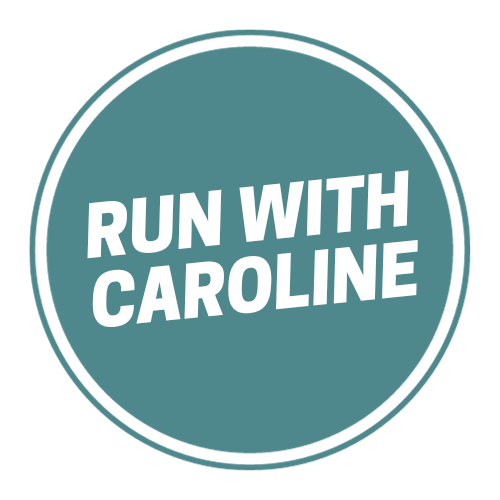Does ovulation cause bloating?
Unfortunately, bloating is often an unwelcome and uncomfortable side effect of ovulation.
If you’ve ever experienced a feeling of tightness or fullness in the abdomen during the middle of your menstrual cycle, then this may be caused by ovulation.
Throughout your menstrual cycle you experience hormonal changes which can lead to a whole host of symptoms, including bloating.
Some of these symptoms can be uncomfortable and even painful for some women.
The good news is there are ways to manage these symptoms and even prevent some of them.
Don’t let bloating restrict your day to day movements!
In this guide we’ll take a closer look at:
- What is ovulation?
- What are ovulation symptoms?
- Does ovulation cause bloating?
- Is it normal to be bloated during ovulation?
- What are other causes of bloating?
- 7 ways to treat bloating during ovulation
Ready?
Let’s go!
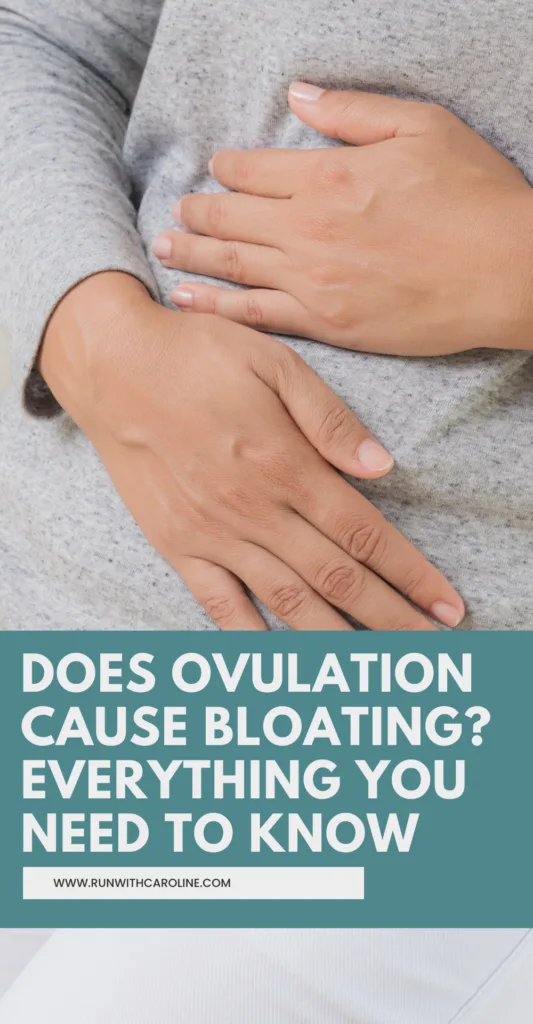
What is ovulation?
Ovulation is the term used to describe the process in which your ovary releases an egg.
The egg then travels down the fallopian tube, where it may encounter sperm and become fertilised.
If fertilisation does not occur, the lining of the uterus sheds and this is what
Ovulation happens on a monthly basis during the middle of your menstrual cycle – typically between days 13-15 before your period begins.
Many women use their ovulation window as a way to understand when conception is most likely to occur.
However, some women may have difficulties with irregular ovulation as a result of medical conditions such as polycystic ovarian syndrome (PCOS).
Related: When does period weight go away? All your questions answered
What are ovulation symptoms?
A woman’s reproductive system sends signals that ovulation is happening.
During this time, you may experience some or all of the following symptoms:
- An increase in cervical mucus that resembles egg whites
- An increase in body temperature
- Breast tenderness and pain
- An internal pain which typically occurs on either the left or right side of your lower abdomen, inside the hip bone.
- Bloating
- Cramping
- Spotting
- An increased sex drive
In most cases, ovulation pain is harmless.
However if you experience severe pain in the lower abdomen, then it may be an underlying sign of other health conditions such as endometriosis, appendicitis or pelvic inflammatory disease (PID).
Your doctor or gynaecologist will be able to help you find a cause of your pain so it’s important you speak with them as soon as you start to experience these symptoms.
Related: What is an endometriosis flare up? Tips for exercising with endo
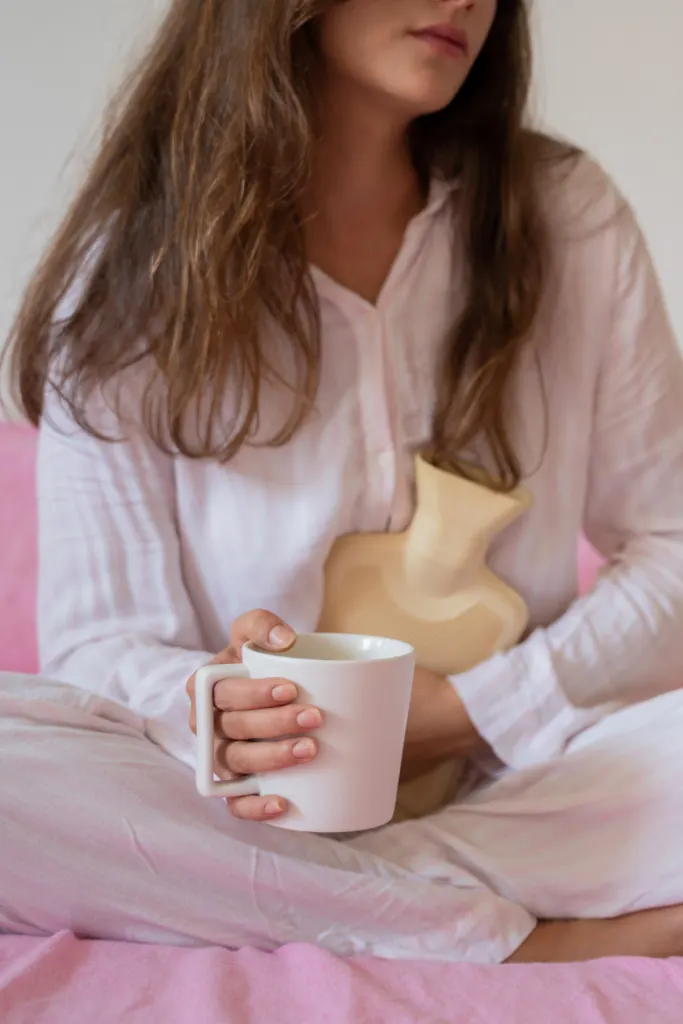
Does ovulation cause bloating?
Bloating can be an uncomfortable and painful side effect of ovulation for some women.
It occurs when there is abdominal pressure, sometimes accompanied by gas, which results in a distended stomach.
Your skin may feel tight and your stomach may feel solid underneath your skin.
You may also have a gassy feeling and increased pressure in your abdomen.
The bloating itself is caused by a few factors, but the key reason is hormonal.
As we explained at the start of this guide, hormonal changes in your body during the menstrual cycle can lead to a variety of symptoms including bloating.
Higher levels of estrogen before you ovulate and lower levels of progesterone after you ovulate can lead to bloating and water retention.
This is because estrogen acts as a fluid retaining hormone, while progesterone is a natural diuretic.
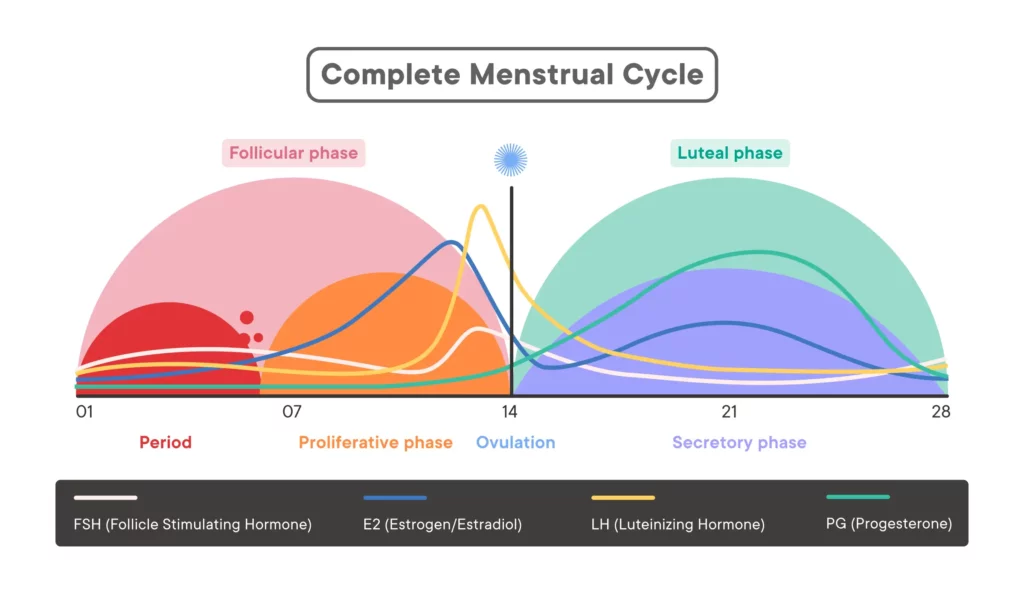
The menstrual cycle | Copyright
Related: Does chocolate help with period cramps? Everything you need to know
Is it normal to be bloated during ovulation?
Yes! During ovulation your body is going through a lot of hormonal changes.
Estrogen levels surge just before the start of ovulation which can trigger symptoms like bloating.
Luteinising hormone (LH) – the chemical that spurs ovulation and helps with hormone production needed to support pregnancy – also surges before ovulation.
Typically, bloating disappears a few days after ovulation.
However, if you have certain medical conditions like polycystic ovary syndrome (PCOS), endometriosis or an ovarian cyst, the bloating may stick around for longer.
If you’re concerned about bloating, book an appointment to see your doctor or gynaecologist.
Related: Returning to exercise after pregnancy: The complete guide
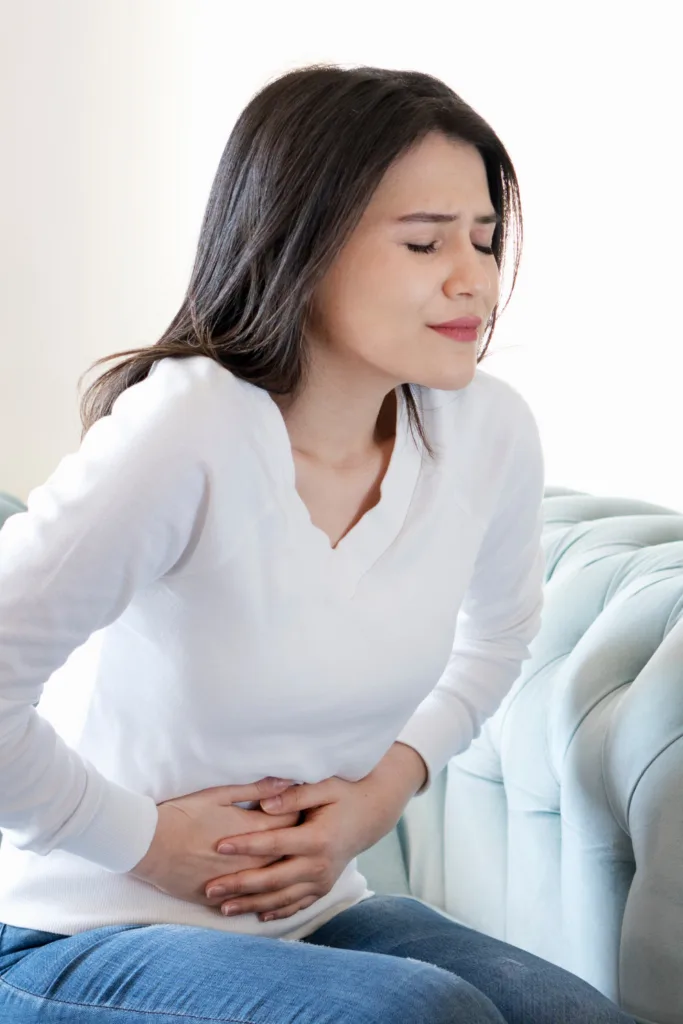
What are other causes of bloating?
Outside of the ovulation window, if you still experience bloating then it may be down to the following factors:
Digestive issues
Constipation and food intolerances can cause bloating.
Excessive gas may also exacerbate bloating symptoms.
Diet
Bloating can also be caused by a poor diet
Certain food can also cause bloating and gas build up:
- Beans and lentils
- Dairy
- Carbonated drinks
- Gluten
- Cruciferous vegetables
- Garlic
- Onions
- Fatty foods
- Artificial sweeteners
- Alcohol
- Foods high in sodium.
Related: Should you work out on your period? 6 best exercises
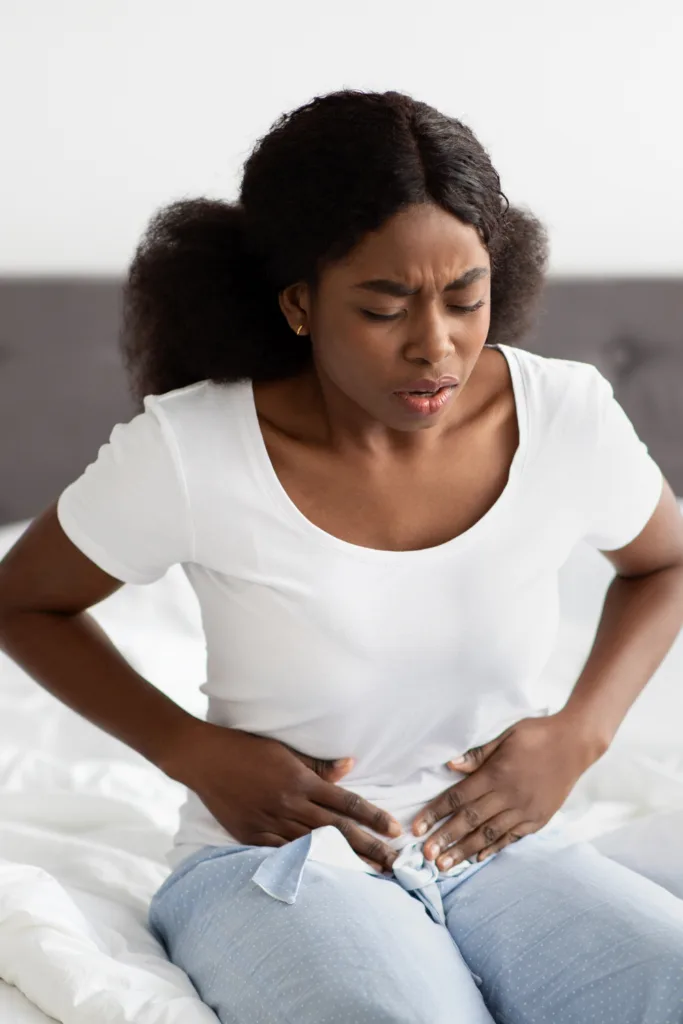
7 ways to treat bloating during ovulation
There are a number of ways you can treat bloating and ease any symptoms associated with it.
#1 Exercise
Daily movement will help to ease bloating and sluggish digestion (which is also a primary cause of bloating).
Exercise like walking, cycling, yoga and deep breathing can help to ease any uncomfortable or painful symptoms.
For the most part you can continue with your normal exercise routine during the ovulation phase.
So if you’re used to high intensity exercise, don’t let it stop you from doing this.
#2 Eat a healthy, balanced diet
As we explained earlier in this guide, bloating can sometimes be caused by food sensitivities and intolerances.
Take a look at what you’re eating to understand what could be exacerbating the bloat.
Foods that include artificial sweeteners, gluten, dairy and carbonated drinks are some that can cause bloating.
Foods that contain high levels of sodium (salt) can also exacerbate bloating.
Foods rich in potassium and magnesium can help to reduce ovulation bloating.
These foods include:
- Bananas
- Tomatoes
- Kale
- Sweet potatoes
- Spinach
- Avocados
#3 Drink plenty of water
Despite what you may think, drinking plenty of water can actually help with bloating as it helps to flush your body of excess sodium.
Aim to drink at least 8 glasses of water each day.
Drinking water before a meal can also help to reduce bloating.
#4 Eat peppermint capsules
Peppermint oil capsules may be helpful to relieve indigestion and gassiness.
They work by relaxing the intestinal muscles which then allows gas and stool to move along more effectively.
Peppermint tea is a good alternative to help relieve symptoms.
#5 Try an abdominal massage
Studies have shown the effectiveness of abdominal massage to help relieve bloating.
A massage that follows the path of the large intestine is helpful to relieve symptoms.
#6 Take a warm bath
Heat in the form of a warm bath or hot water bottle can provide relief for a sore abdomen.
#7 Reduce stress levels
According to research, if your stress response is triggered too often, the body has a harder time recovering which can impede the flow of digestion.
This contributes to the development of irritable bowel syndrome (IBS), stomach ulcers and constipation.
Related: Exercise after hernia surgery: The complete guide for women

Related: Can you exercise during IVF? Tips + exercises to avoid
- 5 things I wish I’d known before returning to running - March 3, 2024
- Running 20 minutes a day: Benefits + how to start - January 27, 2024
- How to run your first 2 hour half marathon - January 16, 2024
